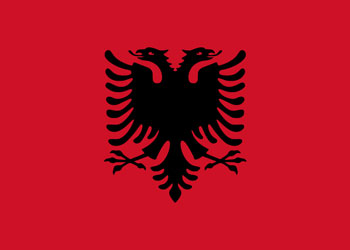Tensions high ahead of crucial Albanian poll
 Tirana - Parliamentary elections on Sunday may help Albania to finally shrug off the image of backward, violent country, but may also trip it on its way to Europe. The early signs are far from encouraging.
Tirana - Parliamentary elections on Sunday may help Albania to finally shrug off the image of backward, violent country, but may also trip it on its way to Europe. The early signs are far from encouraging.
In the runup to the vote, the US urged Albania, which joined NATO in April but remains stalled in its bid for EU membership, to hold fair elections and clear the path for closer links with the West.
"Anything less than that would be a step back," the American ambassador to Tirana John Withers warned. "In all the previous elections, the required standards were not met. The manipulating practices of the past should not be repeated."
Sweden, which assumes the rotating EU presidency on July 1, said Monday the poll may nudge the European Commission's into issuing an opinion on Albania's membership bid.
But the campaign has already turned ugly, with two violent election-related deaths, one in a shooting, the other administered by explosives, and with firebombs hitting party seats in remote areas.
There is also a major administrative problem affecting more than 250,000 voters without modern passports or identity cards, either of which will be required at polling stations, drawing protests from the opposition that selected parts of the electorate were being gagged.
Amid concern that more violence may erupt as tensions rise toward the peak on Sunday evening, Western officials have advised politicians against making their customary premature declarations of victory.
The ruling bloc of conservative Prime Minister Sali Berisha's Democratic Party and the opposition rivals led by the Tiran Mayor Edi Rama's Socialists are running neck-and-neck, according to surveys.
Berisha and Rama made similar programme promises, focusing instead of mutual attacks and accusations of corruption and tyrannical inclinations.
In the end, smaller players - the Socialist Movement for Integration (LSI) and the Christian Democrats - may tip the scales in the final election outcome.
The LSI leader Ilir Meta is a former Socialists, while Berisha's former allies-in-government, the Christian Democratic Party, appears to have drifted across the political centre and closer to the left.
On Sunday, the 3.1 million registered voters will choose 140 legislators, at least 30 per cent of whom must be women.
Some 400 foreigners, including officials from the Organization for Security and Cooperation in Europe election-monitoring mission (ODIHR) and 2,500 local volunteers, were registered to observe the entire election process.
Albania, roughly the size of Belgium, was an isolated bastion of a harsh, Stalinist-style Communism until first multi-party elections in 1991.
It was hit by a wave of deadly unrest following the collapse of fraudulent financial schemes in 1996-97, which forced the then- president Berisha to resign and move to opposition. (dpa)